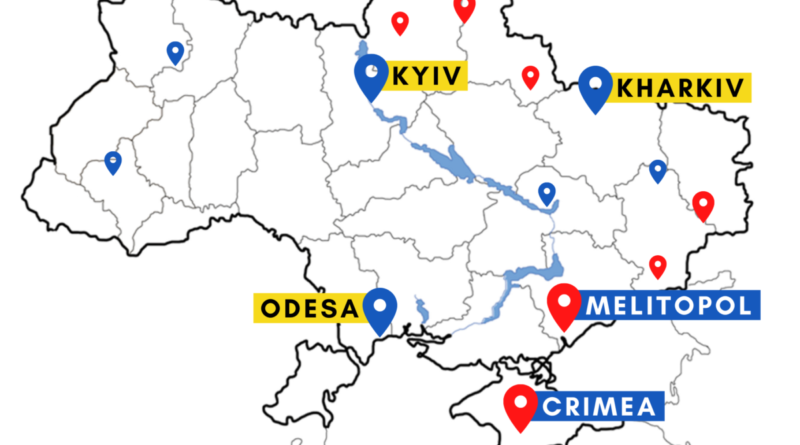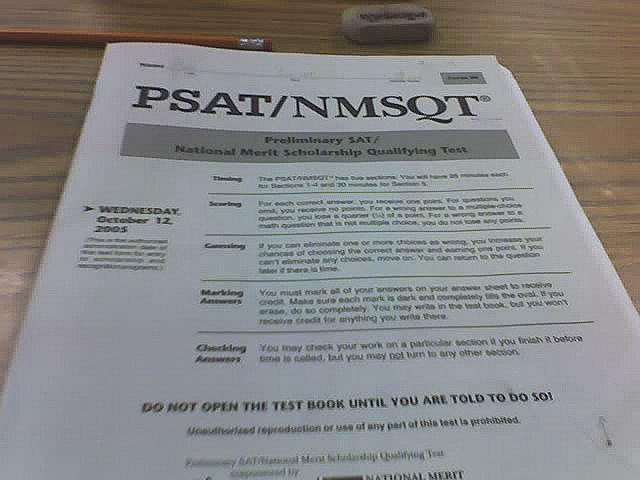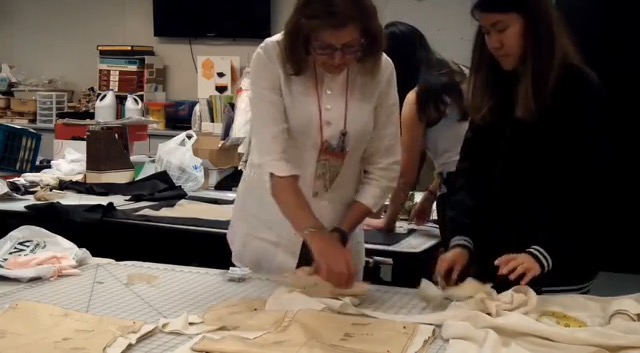Could the war in Ukraine become World War III?
GRAPHIC: Russian forces are targeting the capital city of Kyiv in Ukraine, and have taken over territory on the Northern and Eastern fronts. (Courtesy / Elliot DeJong)
By Max Davis-Housefield,
BlueDevilHUB.com Staff–
In a move that surprised the western world, Russia launched a full scale invasion of Ukraine on Feb. 24. Continuing a recent pattern of escalation, Russian forces have begun attacking civilian targets and the United Nations has warned about the potential use of chemical weapons.
The Russian invasion marks the first major land conflict in Europe since the end of World War II. With many other obvious parallels to WWII, some experts have been questioning if we are headed towards World War III.
“We’re obviously closer than we were before the invasion,” professor Jared McBride, an expert on Eastern Europe at UCLA said. However, he believes it is unlikely the war will escalate to that scale.
Depite not being a member itself, Ukraine is surrounded by members of the North Atlantic Treaty Organization (NATO). Thus far, NATO “seems to be very cautious about any escalation,” he said. “I think we’re still a few steps away from anything really terrible happening more globally.”
Although McBride said that Russian President Vladimir Putin’s decision to invade Ukraine was a “major break” from his previous decision making process, an “attack on a NATO country would be a massive break and escalation (that) would be seen as somewhat suicidal.”
“(Russia) still thought that they were attacking a third, fourth rate military power in a place that was going to (have) little resistance” when they launched their invasion of Ukraine, McBride said.
He added that he thought Putin’s strategy called for a quick victory and regime change. “The goal does not appear to be to occupy the country long term,” he said, because “logistically that would be almost unimaginable.”
McBride said that it appears that Russia has somewhat switched strategies. While high civilian casualties are not often conducive to successful regime change, McBride said that “now they are willing to kill a number of civilians to continue to reach that initial goal (of installing a friendly government).”
But still, McBride said, assuaging fears of nuclear warfare, “you’re not going to be using a nuclear weapon against a place that you want to set up a friendly government.”
He believes that nuclear warfare against any other nations, especially the United States, is also highly unlikely. “My understanding is that we still have an advantage in terms of first strike abilities and I would think … if they fired missiles that Russia would cease to exist – and cease to exist first.”
The most likely resolution to the war would be a series of treaties where both sides make some concessions. It would likely include assurances by NATO towards their future involvement in Eastern Europe.
“The important issue here is timing,” McBride said. “Whether that kind of thing happens in two weeks from now or two months from now or six months from now, it’s going to affect the lives of millions of people.”
With an invasion of NATO countries mostly off the table, the worst case scenario is that it becomes a “long term stalemate situation” that causes a “horrific humanitarian crisis,” McBride said.
Kevin Williams teaches U.S. history at Davis High. He has been talking to his classes about the war.
“It kind of got easy because we’re talking about the prelude to WWII and so much of that lines up,” he said.
“I was just teaching about America’s reaction to the rise of Japanese militarism and we responded by halting our sale of aviation gasoline, by freezing assets, and economic sanctions. And you’re just like, ‘wow, that’s exactly what we’re doing right now,’ “ Williams said.
He points out that these measures only served to draw us further into WWII.
“History has been easy to teach because so much of what’s happening in our current world relates to things that we’re learning about in history. I just get a lot more head nods from people like ‘yeah I get exactly what you’re talking about,’” he said.
Williams has noticed how well informed his students are and has enjoyed learning about world events with them. “It’s really cool as a teacher to have a conversation with kids where you feel like you’re peers,” he said.
However, he has noticed some nervousness among his students.
“Specifically with the young men in the course … they understand that there’s a registration for a draft. They also understand that there is no draft.”





